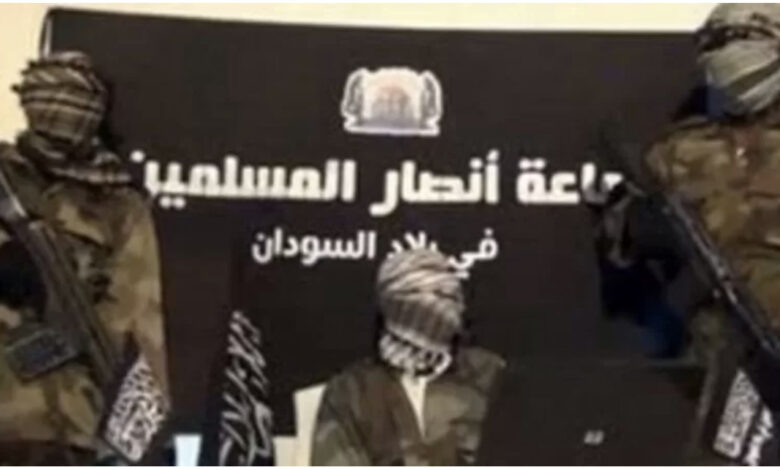Kaduna Train Attack Reveals Nexus Between Terrorists In Northeast And Northwest Nigeria
Northwest Nigeria is on the verge of becoming the next crisis hotspot as Boko Haram fighters move to the region, possibly joining groups like Ansaru to heat up the region.

Since the devastating attack on the Kaduna-Abuja train by terrorists on March 28, 2022, speculation has focused on the mode and gravity of the attack being linked to jihadists, specifically the Jama’atu Ansarul Muslimin Fi Biladis Sudan (Shortened “Ansaru”) wing of the Boko Haram terror group.
According to the Kaduna State Governor Nasir El-Rufa’i, the attackers who abducted and killed passengers, are more than just ‘bandits’ terrorising different parts of Kaduna State, Northwest Nigeria but Boko Haram fighters – a generic name given to Jihadists in Nigeria, regardless of their faction, but which is given explicitly to Jama’atu Ahlussunnah Lidda’awati Wal Jihad (JAS) by experts and journalists.
Later in April 2022, the Federal Government of Nigeria, through its Minister of Information, stated that preliminary reports on the attack revealed collaboration between non-ideological terror groups known locally as ‘bandits’ and Boko Haram Jihadists in carrying out the attacks.
“Preliminary reports of what transpired at the Kaduna train attacks show a kind of collaboration between the bandits and the dislodged Boko Haram terrorists from the north-east,” Lai Muhammad, Nigeria’s Minister of Information, said.
The terrorists who carried out the attack have not yet revealed their true identities or pledged allegiance to any terror organisation. However, they emphasised in the videos they released, which depicted the kidnapped victims speaking, that the Nigerian government is aware of their demands and they are prepared to release the captives once it is met. Experts believe that their demand could be the liberation of their arrested partners.
The unanswered question is who these terrorists are, what do they want, and what are their plans for the future, especially in the Northwest? According to the government, they could be members of Boko Haram’s JAS faction, who have been overpowered and driven from their hideouts by the ISWAP in the Northeast since Shekau’s death. This means that terrorists from the Northeast are steadily running down to the Northwest to create a new jihadi haven in the region.
An investigation by HumAngle in 2020 tracked 15 former Boko Haram terrorists who have eluded capture and begun a new life in Kaduna State. According to the findings, over 3000 of these members have left the Northeast and relocated to various parts of the Northwest. They have been working closely with people as taxi drivers, tailors, wheelbarrow pushers, and even security guards since 2017.
Some of them have sought refuge in Kaduna State’s Rigasa axis, not very far away from the train station where police recently defused two explosive devices discovered in buckets. The location has now become a dangerous area where the presence of terrorists sends a signal about their possible re-emergence. Without going through the deradicalisation processes, these former terrorists could be easily enticed to take up arms and begin new jihadi activities.
Before his death, Abubakar Shekau had attempted to expand and consolidate jihadi activities in the Northwest and Northcentral, releasing various propaganda videos showing his armed members in the area, specifically Zamfara and Niger, states where HumAngle revealed that hundreds of his fighters were present in 2020.
The leader of Ansaru in some parts of the Northwest, one faceless ‘Mallam Abba’, has also taken Kuduru forest as his hideout and terrorises neighbouring communities. Residents of the area have said they distinguish between Jihadists and other terrorist attacks because the jihadists chant “Allahu Akbar” amidst gunshots. The Ansaru group in 2021 claimed an attack that killed six people in the state. They are also present around Igabi, Birnin Gwari, and Giwa of Kaduna State.
Ansaru has claimed several attacks in the Northwest and North-central. In 2020, the group, through Al-Qaeda’s Thabat News Agency, claimed an attack on the Emir of Potiskum along Kaduna-Zaria road.

In Aug. 2020, they claimed another attack on Nigerian soldiers that killed 35 of the Nigerian soldiers in Kaduna state.
Ansaru: short history of a new power player
On Jan. 26, 2012, about one and a half year after Shekau declared he was waging total Jihad, the first faction of Boko Haram, Ansaru (In English: Supporters of Muslims in Black Africa), broke away from him, claiming that Shekau was inhumane and unfit to lead jihadi operations in Nigeria because he targeted civilians. Prior to the official formation, the group had in May 2011 kidnapped two British and Italian nationals along Niger-Kebbi border between Northwest and North-central Nigeria.
In numerous propaganda messages, the group distanced itself from Shekau, particularly after he launched a devastating attack in Kano State. It added that its operational targets would be the Nigerian government and foreign interests only and that they would not target Christians or Muslims except in self-defence. According to them, Shekau’s targeting of civilians helps their enemies look for a reason to cast jihadi activities in a negative light.
However, with the exception of a few attacks and kidnappings of foreigners in Bauchi and Sokoto, Ansaru remained silent since 2013 up until recently, when they are suspected to have resumed their expansion agenda in Niger State and some parts of Kaduna. They were also recently seen in Katsina and Zamfara distributing Ramadan gifts to villagers in order to win their hearts.
According to experts, Ansaru is attempting to exploit security flaws in the Northwest to emerge as a powerful terrorist group in the region. The released videos and how the terrorists spoke bear a striking resemblance to how they usually begin and end their speeches.
Ansaru is an Al-Qaeda-affiliated terrorist organisation which means it is in direct opposition to the operations of Islamic State West Africa (ISWAP) but closer to it in terms of ideology than JAS. In some parts of the Northwest, the group is said to be fighting other terrorist organisations and protecting villages from the attacks of non-ideological terrorists, locally referred to as bandits.
Ansaru’s main aim, like all other Jihadists, is to create a caliphate in Nigeria and expand it to the greater Sahara. However, unlike JAS, Ansaru’s strategy has given them room for co-opting non-ideological terrorists in some parts of the Northwest.
By attacking strategic government positions and kidnapping foreigners, Ansaru members believe they can weaken the forces of government and institute a caliphate in the areas they have power over.
The terror group have been hosting flags in many parts of Niger State and, due to their less amplified operations, they continue to reach distant communities in the area.
Like ISWAP in the Northeast, Ansaru is deploying propaganda mechanisms in winning the hearts and minds of locals and urging them to accept them through minimum violent approaches.
Support Our Journalism
There are millions of ordinary people affected by conflict in Africa whose stories are missing in the mainstream media. HumAngle is determined to tell those challenging and under-reported stories, hoping that the people impacted by these conflicts will find the safety and security they deserve.
To ensure that we continue to provide public service coverage, we have a small favour to ask you. We want you to be part of our journalistic endeavour by contributing a token to us.
Your donation will further promote a robust, free, and independent media.
Donate HereStay Closer To The Stories That Matter




